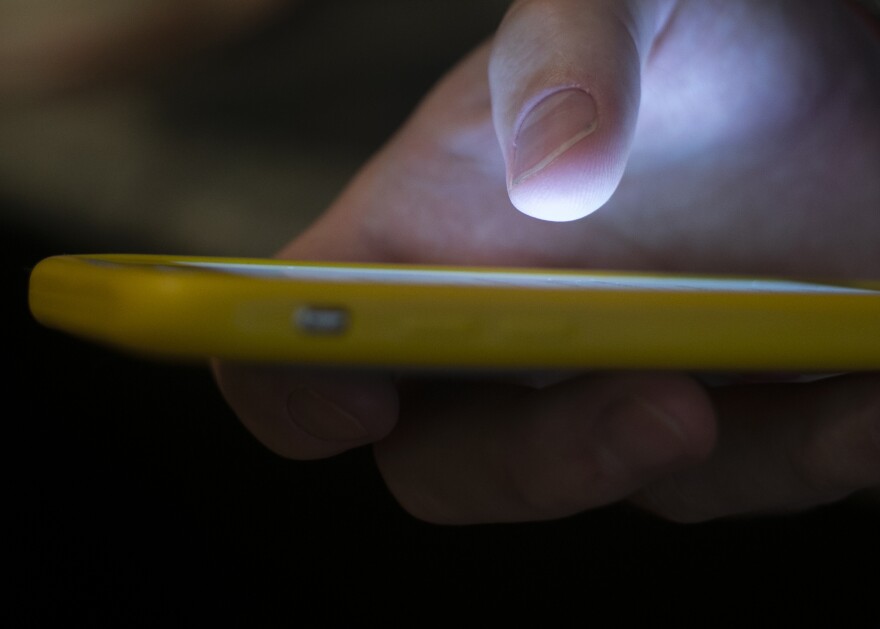The Federal Communications Commission is expected to vote Thursday to designate a three-digit phone number, 9-8-8, for use by suicide hotlines around the United States. Jenna Mehnert is the executive director of the Maine chapter of the National Alliance on Mental Illness known as "NAMI Maine." Mehnert talked with Maine Public's Morning Edition host Irwin Gratz about how the pandemic is affecting individuals' mental health and how creating a three-digit hotline number can help.
Gratz: So, to begin, this has been a particularly stressful time for everyone. But talk to us about the ways in which what's been happening the last few months might actually raise the risk of people having suicidal thoughts.
Mehnert: Anxiety levels have increased among all of us because of the uncertainty of what's going to happen with the pandemic. One of the greatest concerns among all NAMIs in the nation, in mental health providers, is related to our suicide rate potentially increasing as a result of this pandemic. And in our work with local law enforcement, they have shared information with us that they have seen increased suicide patients, as well as attempts, and in some cases those have been connected to the inability to connect to mental health services.
And of course, there have been suicide hotlines for years. But up until now, they've involved seven-digit numbers. Has it been a challenge kind of getting that information into the heads of people who might need it?
Absolutely. Because what we find is that when you need a mental health resource, you are often at a level of acuity where doing research on the internet is more complicated. So we all know to call 9-1-1 if we have a public safety emergency; we know to call 2-1-1 if you're looking for information. So having a three-digit number that we all just know, we don't have to go looking for, will be hugely beneficial. Because unfortunately, you know, suicidality among yourself or someone you love is not something you can kind of plan for. And so having a number that's just three digits that you store in your mind is hugely impactful.
Yeah, especially since this is going to be a national change too - it won't even matter whether you're in Maine or somewhere else.
No matter who's struggling - if your sister is in California, you can say, "Just call these three numbers." Every state system is so dramatically different, and how you access care is so different, that concerned loved ones have a hard time assisting people who are in a different state. But this would change that.
Talk to us a little bit about what happens when people do reach a suicide hotline, and how that may help somebody.
Yeah, I think the most important thing that we need to think about is connection. So whether it's finding access to care, or whether it is an acuity of need in terms of imminent risk of someone taking their own life, and they do need to have an evaluation and potentially receive inpatient psychiatric care, it's that connection that doesn't happen when you're sitting alone, overwhelmed by your thoughts, and you don't want to be here anymore. So the idea of a three-digit number that you can call to get that connection, to figure out what is the right next step for you to move through these overwhelming feelings that life is just too complicated and difficult in this moment.
Any final thoughts about this change and what it could mean?
Suicide is preventable, and suicide is something that needs all of us to engage. It's not something that our society has openly talked about. Yet we know that if we are all aware of what are the things to look for in the people we love - isolating, they're giving away their possessions, they have really negative views of the future, they stop making plans - that we can collectively help people when they're struggling to see that tomorrow can be a better day, and that we need them to face it with us, and that their lives can be what they envision.
Jenna Mehnert, the executive director of NAMI Maine, thank you for the time. We appreciate it.
Thank you very much.
Once again, the Federal Communications Commission is expected to vote today to approve a 9-8-8 number for a suicide hotline. It may take some time for that number to actually be put into effect.




